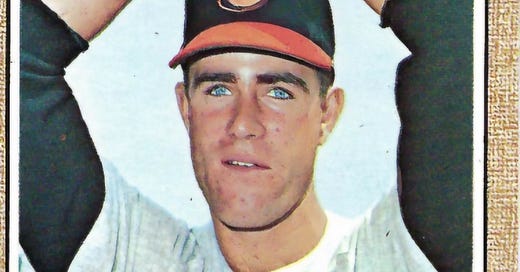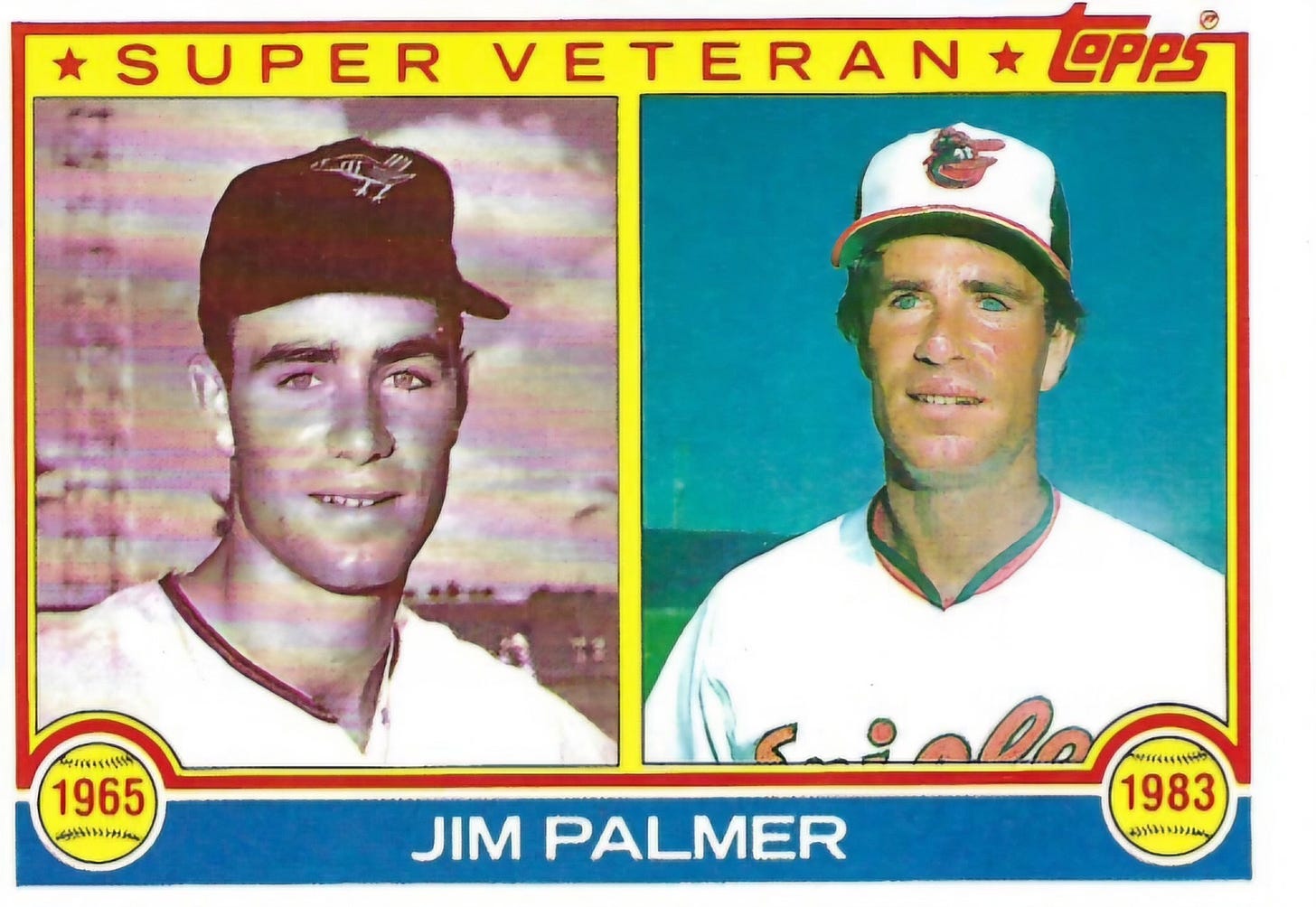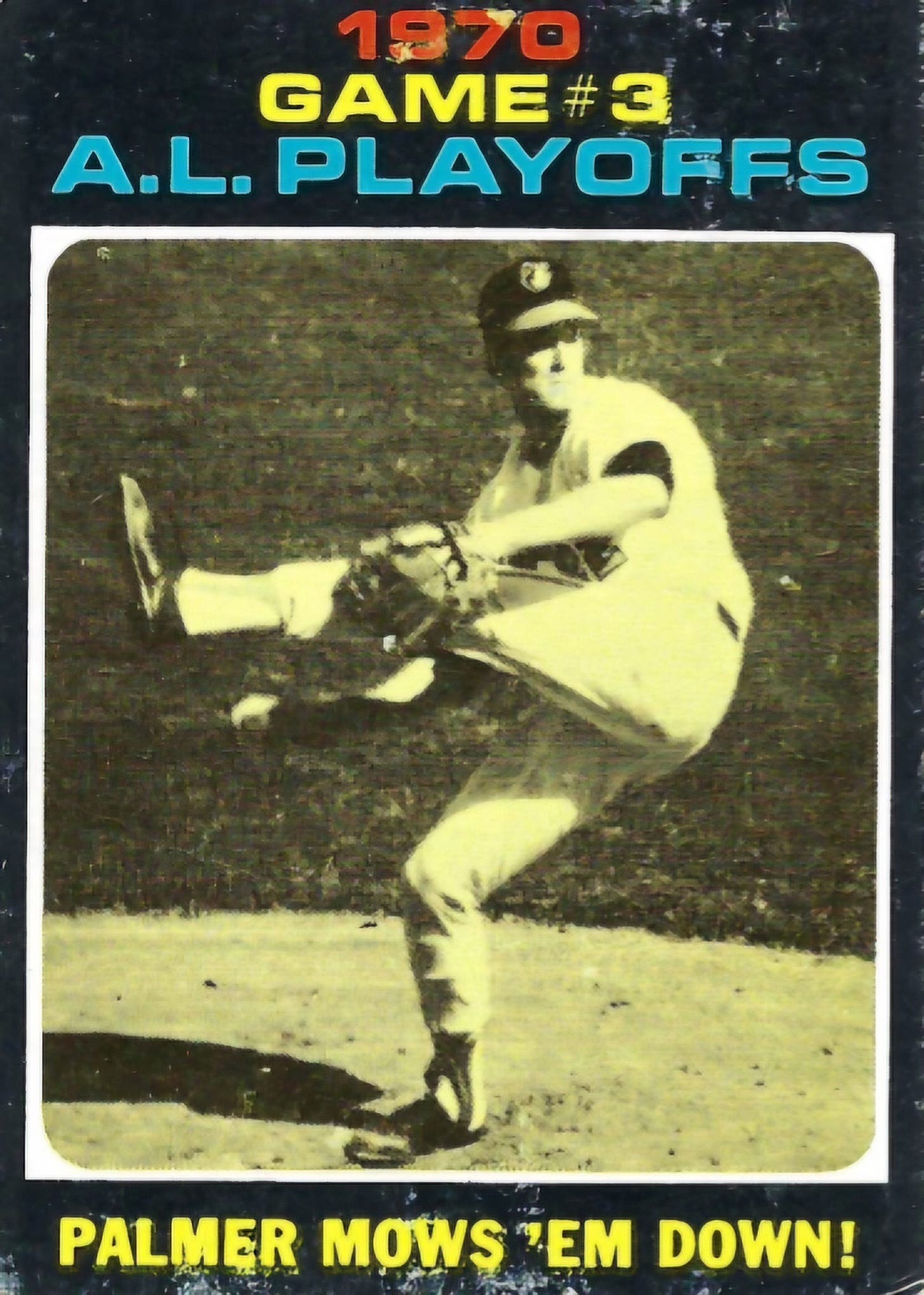The Bird Tapes Interview: Jim Palmer
His battles with Earl Weaver were a major topic when we spoke in 1999. But as always, the Hall of Famer had opinions on many subjects, including what the Orioles did right and wrong over the years.
I’m guessing most Bird Tapes subscribers know what certain figures in Orioles history sound like before their interviews are posted here.
Brooks Robinson? Baltimore fans know his voice when they hear it.
Frank Robinson and Cal Ripken Jr.? Same
Harry Dalton? That’s a voice from decades ago, likely to resonate only with fans of (cough) a certain vintage. And more of those are coming. (Spoiler: Jim Gentile next week, Steve Barber not long after that.)
But if there’s one voice I know fans know, it’s Jim Palmer’s. The greatest pitcher in Orioles history has had a role on the team’s television broadcasts since the mid-1980s, basically from as soon as his playing career ended. He has talked about the Orioles for a lot longer than he played for them, to the point that his voice is as associated with the Orioles as the bird on their cap.
Palmer was on the broadcasts when I interviewed him in 1999 for my book on the team’s history, and he’s still on the broadcasts in 2024.
There’s a reason for that. Actually, many reasons.
For starters, his memory is unmatched. Early in his Bird Tapes interview, available below to paid subscribers, he tells me exactly how many consecutive scoreless innings he pitched at the Orioles’ minor league camp in Thomasville, Georgia, in the spring of 1964. (Twenty-seven, for those wondering.) It’s classic Palmer, just one example of the relentless avalanche of scores, situations, counts, pitches and statistics he recalls with precision from his decades in the game.
He’s also honest in his assessments and analysis, blunt when necessary and unafraid to criticize. Listening to him on a broadcast amounts to sitting in on a masterful professor’s class in baseball theory, tactics and history. It’s truly a treat, both in good times and bad for the team.
His one-on-one interviews fall into the same category.
The full extent of his powers are on display in the interview posted below. He recounts the remarkable story of his signing, when the Orioles beat out their former manager/GM, Paul Richards, who had joined up with the National League franchise in Houston. Hr drills deep into what happened to the Orioles, good and bad, when he played — and considering that he played on all six Baltimore teams that made the World Series, there was a lot more good than bad.
“There was nothing like being on a winning team,” he says.
Listening back years later, my only regret about the interview was it didn’t last long enough. But that’s not unusual. Palmer has been on and around the Orioles for so long and appraises everything with such insight and originality that I’d like to record him for, say, 25 hours discussing the hundreds of topics in Orioles history he’d surely have thoughts on — teammates, games, situations, transactions, etc.
But you take what you can get. (For the record, he is always generous with his time.) We still covered a ton of ground in our 1999 interview.
Keep reading with a 7-day free trial
Subscribe to The Bird Tapes to keep reading this post and get 7 days of free access to the full post archives.







